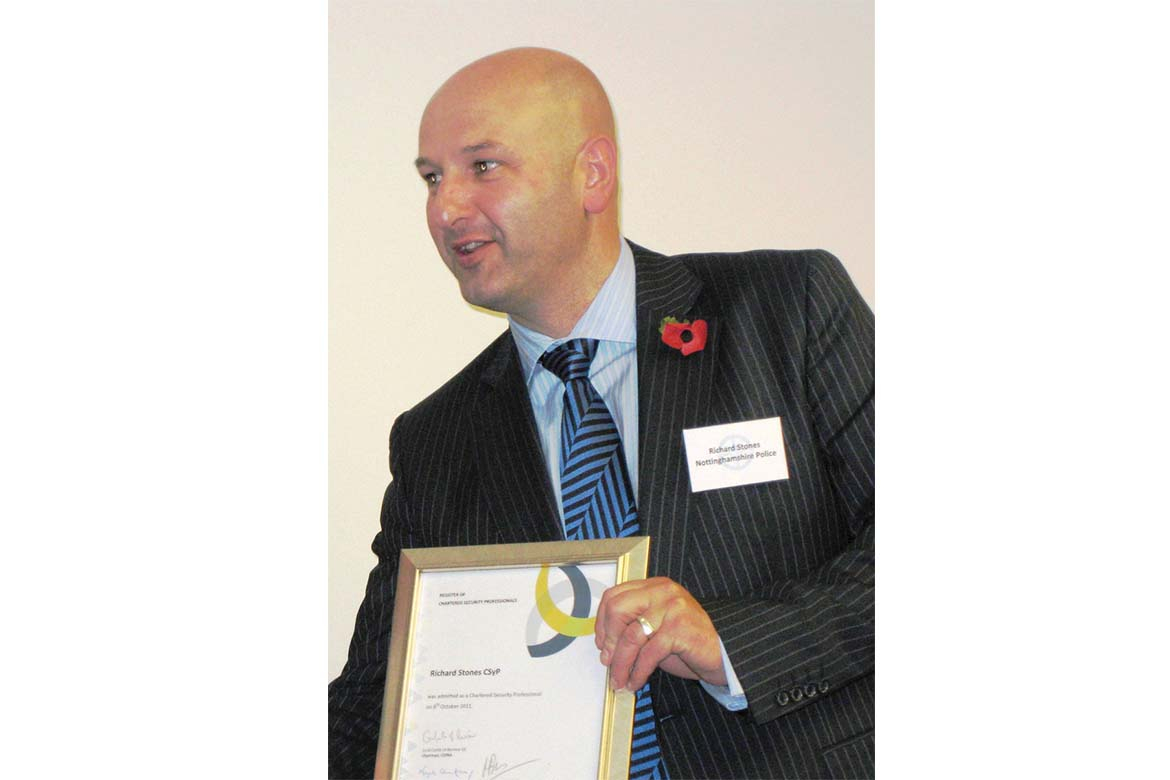An inside view from the first police officer to achieve Chartered Security Professional (CSyP) status
For the last 27 years I have been a Police Officer and, yes, we all moan that it’s not like the good old days, but let’s be honest, it’s a pretty good job really. There is no way in ‘civvy street’ I would have attended some of the courses I have or seen some of the things I’ve seen. In most situations, irrespective of the audience, it’s always policing that crops up as a topic of conversation that people are interested in: what we ‘in the cloth’ do. But do people really understand what we do? If I’m honest, I don’t think they do and they certainly don’t understand some of the courses we attend. As a result it can sometimes make it difficult for those in the private sector to have confidence in us. For example, with very few exceptions, all the courses I’ve undertaken in policing don’t transpose into something tangible for the private sector and yet we seek to advise and guide them on a daily basis and expect them to listen.
This can be very difficult for someone who has spent a lifetime developing a successful business, particularly when our advice is free and unbiased and generally they are used to paying for an opinion. So, if I owned a business and wanted to better protect it, would I want to know the capabilities of the person advising me?
Achieving the CSyP
For the last twelve years my role has seen me working at local, regional, national and international levels within the business community looking at business security and resilience. With this increasing responsibility has come the need to better demonstrate my capabilities to business in a manner to which they can relate. Having undertaken an MSc in Security and Risk Management and various other private sector qualifications, the CSyP, for me, encapsulates all the skills and qualities necessary to demonstrate private sector understanding and the capability necessary to engage with business at the appropriate level irrespective of its size, worth or risk.
The CSyP is not an easy standard to achieve, and nor should it be, but don’t let that put you off. The Register granted by The Worshipful Company of Security Professionals under the Royal Charter has put CSyPs on a par with accountants, solicitors and other professionals, and it also sets you apart from other security professionals. The selection process is rigorous with a thorough paper sift undertaken by at least two independent assessors, followed by an interview with a further two assessors. All assessors hold senior security positions and come from a diverse range of organisations. The process is rightly probing but successful applicants can be assured that they have achieved the foremost industry standard in security which demonstrates professional knowledge, strategic management and engagement and a peer reviewed selection process. It doesn’t stop there either as the CSyP is then required to maintain their Continuing Professional Development to retain the post nominal.
Worldwide recognition of the CYsP
In the year since its introduction we have seen applicants flying in for interview from as far afield as Africa and Australia, testament indeed to the recognition that international businesses place on this UK standard. As the Register continues to grow, the industry sectors represented at a senior level become more diverse and representative of the broad range of risks that businesses face.
For many, the CSyP serves as recognition of their achievement within the security profession; for me as the public sector suit, it allows me to demonstrate broad level understanding of the risks and threats a business faces and helps instil confidence,in common terms, to those bodies that I’m advising and supporting.
Richard Stones MSc CSyP FSyI
Richard has recently been seconded to ACPO as the staff officer for the National Business Crime lead. He is a former Director of the National Business Crime Forum and is an advisory council member to the City Security and Resilience Network – CSARN. He is a member of the UN Public Private Partnerships Project in protecting Crowded Places and the NATO workshop on information and intelligence sharing. He is also a Technical Advisor to the EU funded DESURBS project, designing safer urban spaces and recently wrote the UK Chapter of the McGraw-Hill American Homeland Security Handbook.
For more information on the Chartered Security Professional qualification, visit: www.security-institute.org

